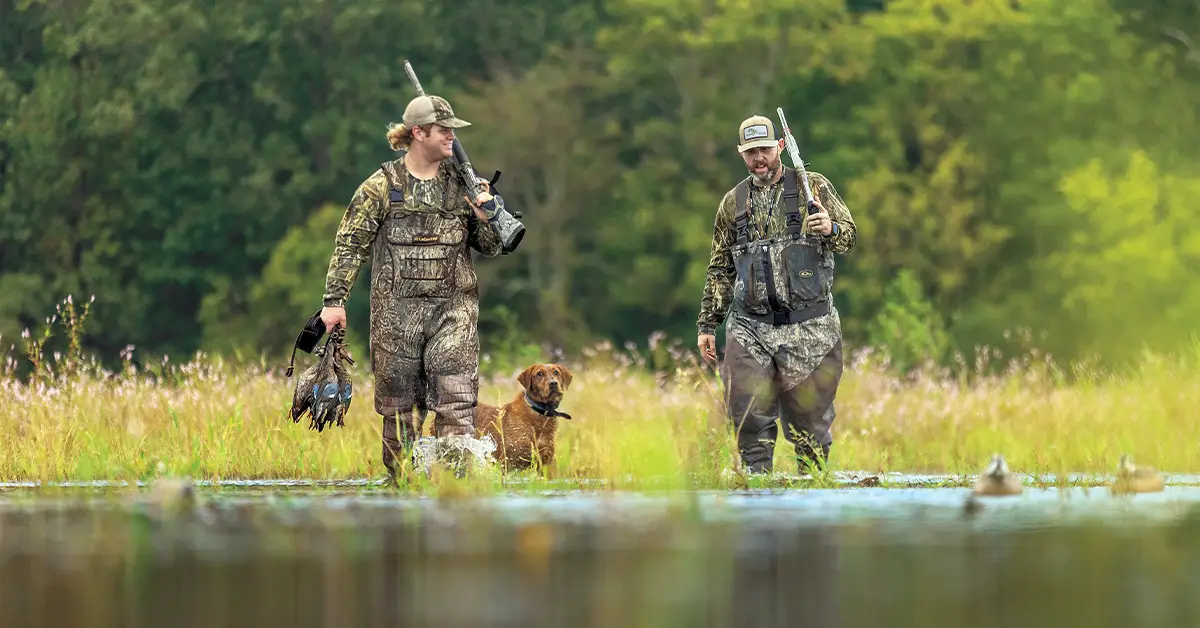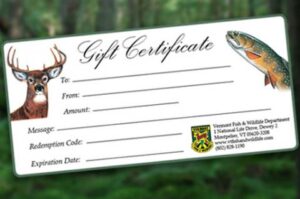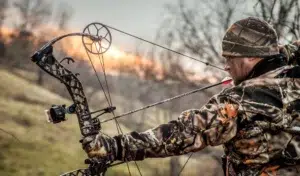Embark on a journey to discover the ultimate times for duck hunting, blending age-old wisdom with contemporary strategies. This guide is designed to navigate you through the seasons, times of day, and varying weather conditions to secure your most successful hunt.
- The Best Times of Day for Duck Hunting
- Seasonal Strategies for Duck Hunting
- Weather and Environmental Factors
- Tactical Hunting Advice
- Decoy Placement Guide Infographic Table
- Special Considerations
- Advanced Tips for the Avid Hunter
- Conclusion: Crafting Your Duck Hunting Strategy
- Frequently Asked Questions (FAQs)
The Best Times of Day for Duck Hunting
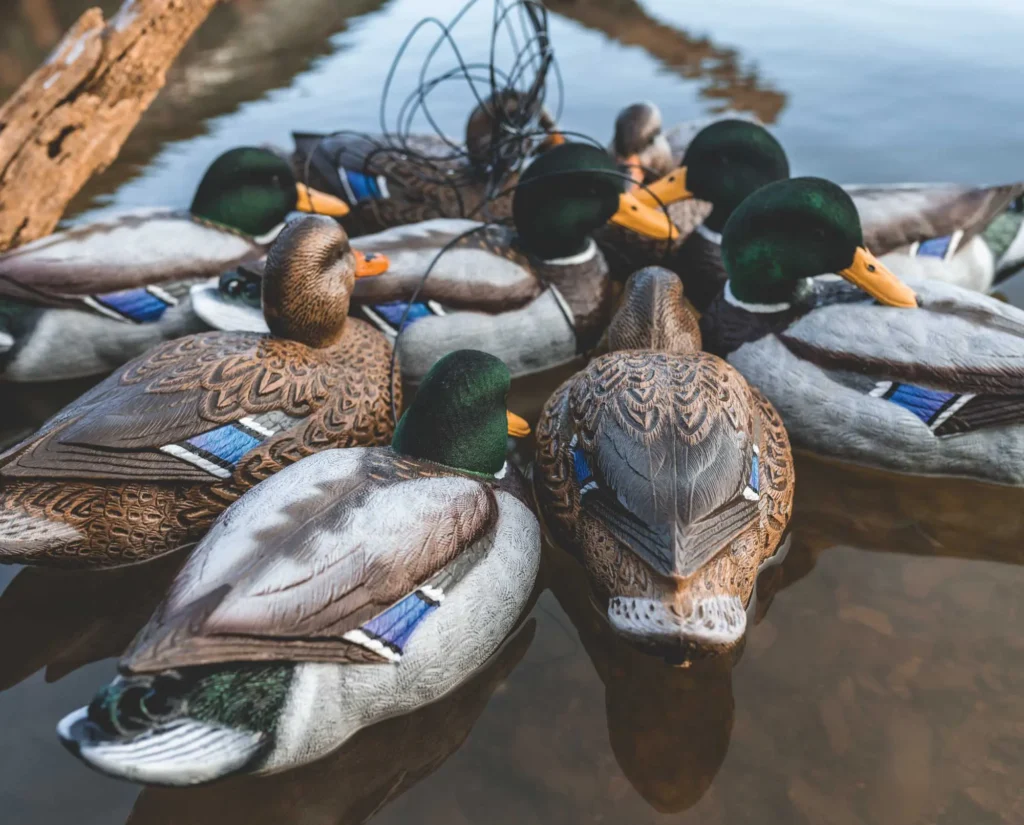
Early Morning Excellence
The early morning hours, just as the world awakens and legal shooting light begins, represent a golden opportunity for duck hunters. Studies show that ducks are most active during these hours, venturing out in search of food after a night of rest. According to the National Waterfowl Association, “Ducks are up to 50% more active in the early morning than at noon, making this the prime time for hunting.”
Key Strategies:
- Arrive before dawn to set up; ducks begin their day at first light.
- Use a mix of decoys to simulate an attractive feeding area.
Midday Opportunities
Midday, often overlooked by traditional hunters, holds untapped potential, particularly as the season progresses and ducks grow wary of predawn and dusk hunters. An overcast sky can extend the effectiveness of midday hunting, as ducks remain active longer than on sunny days.
Infographic Insight: An infographic showing the difference in duck activity levels during overcast versus sunny days illustrates that midday hunting can be almost as effective as dawn under the right conditions.
The Afternoon Advantage
The last hours before sunset are crucial. As ducks head out for their final feed of the day, hunters have another prime window. “Late afternoon hunts can be as productive as early mornings, especially during the winter,” notes a veteran hunter in Waterfowl Weekly.
Tactical Tips:
- Focus on areas where ducks have been feeding throughout the day.
- Adjust your decoy spread to account for lower light and visibility.
Seasonal Strategies for Duck Hunting
Duck behavior and patterns shift with the seasons, necessitating a strategic approach to when and where you hunt. From the early excitement of September to the challenging cold of January, every month offers unique opportunities and challenges.
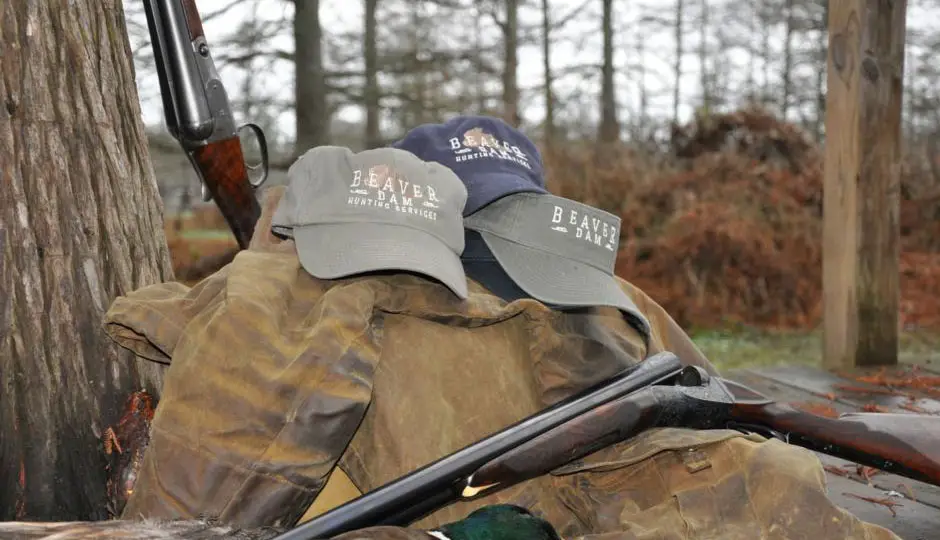
Weather and Environmental Factors
Understanding the pivotal role of weather in duck behavior is crucial. A sudden cold front can spur migration, creating abundant hunting opportunities. Conversely, a prolonged warm spell may delay migration, requiring adjustments in strategy.
Weather Impact Table
A table detailing how different weather conditions (e.g., rain, snow, fog, clear skies) affect duck movement and behavior can guide hunters in planning their outings.
| Weather Conditions | Impact on Duck Behavior | Hunter Recommendations |
|---|---|---|
| Rain | Increases activity in water bodies, ducks seek shelter and food. | Ideal for hunting near water bodies. Wear waterproof gear and prepare equipment for rain. |
| Snow | Reduces visibility and concentrates ducks in non-frozen water areas. | Focus on rivers or parts of lakes that remain unfrozen. Use white camouflage if necessary. |
| Fog | Decreases visibility, but increases ducks’ confidence to move. | Use duck calls moderately to attract without startling them. Stay still and alert. |
| Clear Skies | Ducks are more alert and cautious due to better visibility. | Best time for passive hunting. Use a more natural and dispersed decoy setup. |
| Strong Winds | Ducks move to areas with less wind and may alter their flight patterns. | Hunt in sheltered areas or where wind creates natural funnels. Adjust decoy spreads to simulate shelter-seeking behavior. |
Tactical Hunting Advice
Legal Shooting Hours: Maximizing Your Hunt
Knowing the local regulations for legal shooting hours is crucial for ethical and effective hunting. These hours are designed around ducks’ natural activity patterns, offering hunters the best opportunities while ensuring the safety and conservation of the species.
Decoy Setup and Adjustment Strategies
An effective decoy setup mimics natural duck behaviors and patterns, increasing the likelihood of attracting ducks. Seasoned hunters often adjust their spreads based on the day’s conditions and observations of real duck movements.
Decoy Placement Guide
A step-by-step infographic on setting up decoys for different hunting scenarios (e.g., open water, rivers, marshes) can significantly improve hunters’ success rates.
Decoy Placement Guide Infographic Table
Decoy Placement Guide Infographic Table
Title: Ultimate Decoy Placement Guide for Duck Hunters
Open Water Scenario
| Step | Description | Visual Cue |
|---|---|---|
| 1 | Position yourself downwind. | Arrow indicating wind direction & hunter position. |
| 2 | Arrange decoys in a “J” or “U” formation. | “J” or “U” shaped pattern of decoys on water. |
| 3 | Place confidence decoys outside the main formation. | A few isolated decoy symbols. |
| Tips | Use a mix of species and anchor decoys for natural movement. | Icons of different duck species & an anchor. |
River Hunting Scenario
| Step | Description | Visual Cue |
|---|---|---|
| 1 | Identify a bend or pool and set up on the shore. | Bend in a river with an X on the shore. |
| 2 | Deploy decoys upstream to float down to desired area. | Decoys floating down a river line. |
| 3 | Add “sleeper” decoys on the shore. | Decoys on the edge with Zz symbols. |
| Tips | Position some in faster water to simulate swimming. | Decoys in wavy lines for fast water. |
Marsh Hunting Scenario
| Step | Description | Visual Cue |
|---|---|---|
| 1 | Choose a spot with good cover near open water. | Icon of reeds and open water spot. |
| 2 | Place decoys in small groups, some in reeds as if feeding. | Groups of 2-3 decoys, some in grass icon areas. |
| 3 | Create a landing zone in the most open part of your setup. | Circle in open area indicating landing zone. |
| Tips | Incorporate feeder decoys to simulate ducks tipping up to feed. | Decoys with downward heads. |
Closing Tips for All Scenarios:
- Consider wind direction and sun position. (Visual Cue: Compass and sun icons)
- Adjust your spread based on observations and conditions. (Visual Cue: Binoculars and weather icons)
- Experiment with configurations. (Visual Cue: Experiment tube and decoy icons)
Special Considerations
Morning vs. Evening Hunting: What Works Best?
The debate between morning and evening hunting is as old as hunting itself. Both times offer distinct advantages, influenced by factors such as location, time of year, and personal preference. A detailed comparison chart highlighting the pros and cons of each can help hunters make informed decisions.
The Role of Personal Preferences in Duck Hunting
Ultimately, the best hunting times may also come down to personal preferences. What works for one hunter might not for another, emphasizing the importance of experimenting and learning from each outing.
Advanced Tips for the Avid Hunter
Deep knowledge of ducks’ feeding times, preferred locations, and how wind conditions affect their movements can elevate a hunter’s strategy from proficient to expert.
Conclusion: Crafting Your Duck Hunting Strategy
Success in duck hunting comes from a profound understanding of the birds’ patterns, the changing seasons, and leveraging the environment to your advantage. By applying the detailed insights and strategies from this guide, you’re well on your way to becoming a more effective, responsible, and successful hunter, ready to make the most of every opportunity the seasons present.
Frequently Asked Questions (FAQs)
What is the absolute best time of day for duck hunting?
The best time of day for duck hunting is generally during the early morning hours at sunrise. Ducks are most active during this time, leaving their roosts to feed. This activity level makes them more susceptible to decoys and calls. However, the effectiveness can vary based on specific weather conditions and the time of the year, so it’s also beneficial to consider late afternoon hunts, especially during colder months when ducks are looking for food before nightfall.
Does weather really affect duck hunting success?
Yes, weather significantly affects duck hunting success. Cold fronts can trigger migrations, leading to increased duck activity and providing excellent hunting opportunities. Fog, rain, and snow can also affect visibility and duck behavior, sometimes making them more predictable or providing cover for hunters. Understanding and adapting to these conditions can greatly improve your hunting outcomes.
How important is decoy setup in duck hunting?
Decoy setup is crucial in duck hunting as it plays a significant role in attracting ducks to your hunting area. An effective setup mimics natural duck behavior and patterns, making the scene more convincing to passing ducks. Adjusting your decoy spread according to the day’s conditions, such as wind direction and weather, can increase your chances of a successful hunt. It’s also valuable to continuously observe and learn from real duck movements to refine your strategies.
Can I hunt ducks at any time during the hunting season?
While you can hunt ducks throughout the hunting season, the best times are influenced by migration patterns and legal shooting hours. Early season hunts can be productive as ducks are less wary, but as the season progresses, understanding migration patterns and weather conditions becomes key. Always adhere to legal shooting hours, which are set to ensure ethical hunting practices and conservation efforts.
Is it better to hunt ducks in the morning or evening?
Choosing between morning and evening hunts depends on personal preference, duck behavior, and environmental factors at your specific hunting location. Morning hunts are traditionally preferred due to higher activity levels of ducks seeking food. However, evening hunts can be equally productive, especially during colder months when ducks feed before nightfall. Experimenting with both times may reveal what works best for your particular situation and preferences.

